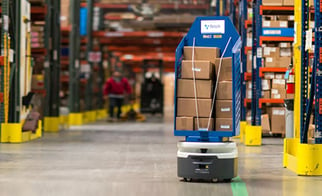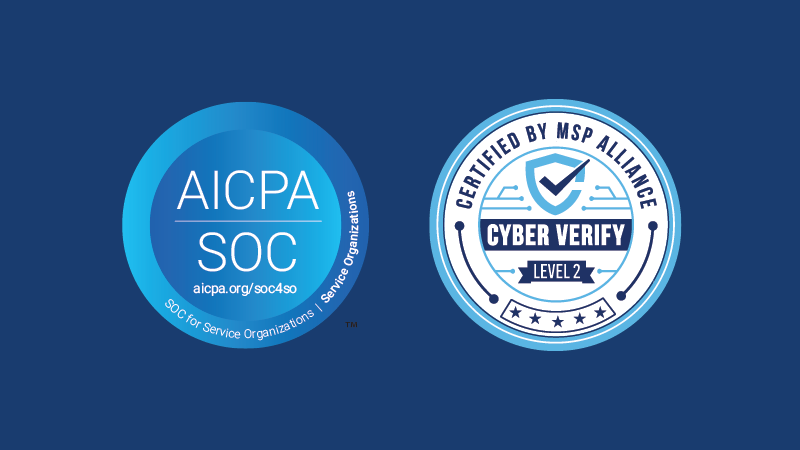As a business owner, you see how much and how fast the world is changing, especially when it comes to technology; in fact, your business probably looks somewhat (or even dramatically) different today than it did just a few years ago.
As businesses evolve, it’s critical to continually assess the supply chain technology partnerships your business relies on. Though you undoubtedly spent a fair amount of time and effort selecting those that suited your needs “back then,” it might be time to find a new one that’s more precisely aligned with your current and future needs.
This blog post provides useful tips to help you evaluate your current partnerships; you can also use those same criteria to vet potential new partnerships, if that’s what you need.
STEP 1: DEFINE YOUR BUSINESS
You can’t evaluate partners if you’re not sure what need you’re expecting them to fill. Start the process by looking critically at your business, asking yourself and your team these questions:
- What are our business objectives? That’s a pretty broad question, but one that must be answered in order for you to know whether or not the technology you have today is right … and to understand the technology needs you’re going to face tomorrow. Articulate where you want to grow, how you want to grow, where new opportunities are, and where you’re struggling to gain efficiencies and maintain profitability
- How does our business function today? It’s critical that you outline your basic business processes, from order through delivery. This “blueprint’ will help you see the big picture and interdependencies that could affect the choice of technology
- What challenges do we anticipate in the near and long-term future? Look ahead, as much as you’re able, to what you expect is on the horizon for your industry and business. You don’t want to solve just for today, but for what’s ahead, too
STEP 2: ARTICULATE WHAT’S WORKING…AND WHAT’S NOT
Know precisely where you stand with your current partner. Ask yourself some tough questions, like:
- Are they delivering measurable business impact? In other words, are they saving you time and money? Improving efficiencies and boosting productivity?
- Do they make your success a priority? Do they ask questions to continually learn about your company and its customers? Do they bring practical ideas and useful knowledge to the table that could help you grow?
- How’s their support? Are they quick to answer and eager to assist? Do they own their mistakes and make things right when they go wrong?
If you can answer “yes” to each of these questions, congratulations – you’ve got a terrific partner that’s contributing to great results! If not, though – if you see some critical gaps in what they’re doing for you – it’s time to start looking for one that has what it takes to take you to the next level. And trust us, they’re out there!
STEP 3: OUTLINE CRITERIA TO USE IN EVALUATING POTENTIAL PARTNERS
At this point you’ve defined your business, and now you need to do the same for your ideal supply chain technology partner. The list of criteria should start with “must-haves” but can also include things that are simply “nice to have.” Your list will depend on your specific business, but some criteria are non-negotiable if you want to stay ahead of the curve. Those things are listed below.
- Scalability. If you plan to grow, you need a partner that can easily scale up to meet demands that’ll come your way. Share your future plans with prospective partners and ask if they’re truly capable of and committed to having the resources available to help you achieve those plans
- Knowledge of your business. For the relationship to be successful, a supply chain partner must fully understand your business and its processes. When it comes to developing the most effective solutions, there’s no substitute for actual experience with your unique processes, terminology, and ecosystem. Prior industry experience tells you that a potential partner has valuable insights into challenges you’ll face – and potential solutions
- Experience across the entire supply chain. Many technology firms claim to be masters of the supply chain but in reality only focus their solutions on a specific component of it. If a partner has siloed experience, it means you’d have to supplement with other partners in order to address the entire spectrum – a model that’s expensive, complex, and frustrating for everyone involved
- Services aligned with your needs. Engaging multiple technology partners for different services can be frustrating, not to mention expensive. Every additional partner means another account, another invoice, and another entity to manage. Look for a partner that provides several of the services you need, and communication and project management will be simpler and more efficient
- Custom solution offerings. Your company is unique, even if it offers similar products and uses common distribution strategies. Custom supply chain solutions are rapidly becoming one of the most meaningful points of differentiation in a crowded marketplace, and that means you should be looking for a supply chain technology partner that’s willing (and able) to think outside the box when developing solutions to meet your needs
- Delivery model. Ask every prospective partner if they function as a “staff augmentation” firm, or if they’re focused on managing projects that have a defined scope and ending point. Typically, a firm with a focus on staff augmentation will have a lower hourly rate, but its resources often require you to provide management and direction. A project-based firm will usually be more comfortable managing a project, but will usually command a premium rate. Compare these delivery models to determine which aligns more closely with your business needs
- Human resources. Many technology firms speak generically about their resources, failing to clarify the types of resources they employ; it’s important to know whether theirs are full-time employees or independent contractors. Firms with full-time employees are typically more stable, meaning that your project is more likely to finish with the same team members it started with. Firms that staff projects with independent contractors can be more competitive on price, but often have difficulty maintaining consistent staffing over the long run
- Experience and certifications. Businesses partner with technology providers in order to leverage their expertise. For this reason, it’s important to make sure partners employ professionals with demonstrated experience in the areas you require. In other words, you don’t want to be a training ground for their people. Ask for certifications and customer references to vet the partners’ capabilities
- Financial stability. The success of your operation depends in part on partners delivering what’s required for your business, and that means the financial stability of a partner is critical. If your supply chain technology partner finds itself in financial difficulty, they may not be able to meet their obligations to you, causing costly disruptions to your business. Ask for evidence that they’re positioned well to be an integral part of your long-term plans
- Aligned culture. The best partnerships occur when both parties embrace similar values, world views, and business practices. Get to know your potential partner before making that final selection. Ask to meet members of the management team, account manager, and one or two of the folks who will support your account. A few short meetings can tell you whether this is a partner you’d enjoy (and be proud of) working with
The supply chain is one of the most important components of your business, and the support of the right technology partner can significantly influence your success. Take a close, critical look at your current and future needs, and at the value being derived from your technology partnerships. Are you getting the quality and quantity of help you need to thrive? If not, use the criteria outlined here to evaluate potential partners who can make a positive impact on your business today, and well into the future – no matter what that might look like.
Download our infographic and use it as a handy guide as you search for the best supply chain technology partner.





